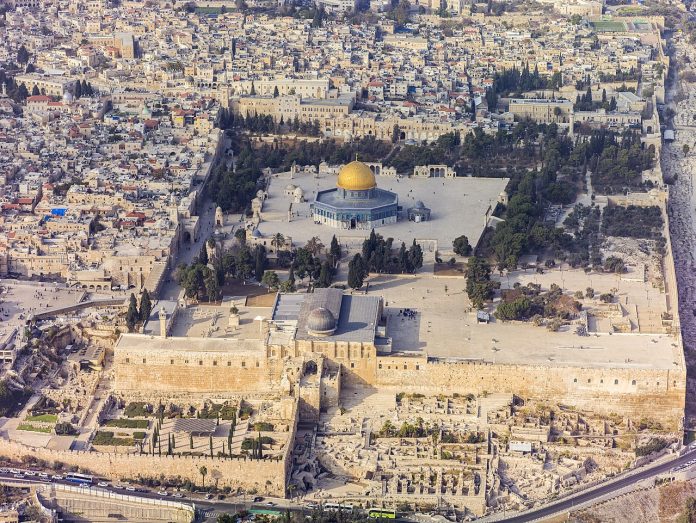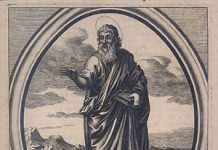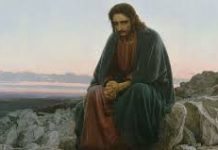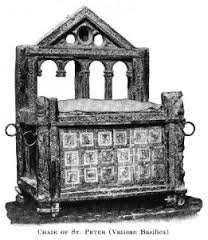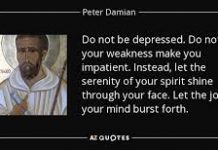Tom Wolfe died a couple of days ago, on May 14th, one of the originators of what came to be called the ‘new journalism’ in the heady sixties, a flowing, stream-of-consciousness form of writing, vividly descriptive and introspective, with essays such as the Electric Kool-Aid Acid Test and the Kandy-Kolored Tangerine-Flake Streamline Baby. But he is also known for the best-selling all-American novel, The Right Stuff, about the Mercury Seven astronauts, as well as Bonfire of the Vanities, recounting the materialism and shallowness of Wall Street and the financial rat race, both made into popular films. Requiescat in pace.
President Trump’s decision to move the U.S. embassy from Tel Aviv to Jerusalem, the ‘city of David’ claimed by the three great monotheistic religions (especially Islam and Judaism) has produced, to put it mildly, controversy. Clashes broke out at the Gaza border, with over fifty killed so far, mainly by Israeli snipers; the IDF (Israeli Defence Forces) warned anyone approaching the fence would be shot, but there are claims that others not so close to the border line are being hit as well.
One is at a bit of a loss what to make of this, mired in the controversial history not just of British Palestine (now Israel) but with the whole history of Muslim-Jewish animosity, which goes all the way back to Mohammad himself. There will never be a real ‘peace’ between these two religions, not least since Islam has as its fundamental aim the ‘submission’ of all other religions to itself, by means fair and foul. Whatever the historical injustice of removing Palestinians from their homeland in the years after 1948, there is no practical way of going back, and the land is now ‘shared’, if such be the verb, between Jews and Muslims, each keeping more or less their own space.
What is the ideal in all of this? Well, I would go with Christ in today’s Gospel, who prayed that ‘all may be one’, as He and the Father are one, and that all may be ‘sanctified in the truth’, discovering with wonder and joy the one true religion, so that we all might live in perfect harmony.
That will likely have to wait until heaven, and politics is the art of the here and now, the possible and the practical, while keeping the ideal in mind. So we seek what harmony and peace we might, in the midst of a very fractious situation.
Who has the greater claim to the holy city? At the very least, Judaism is based upon a true covenant between God and Man; even if now superseded by the Christian dispensation, God’s promises are not revoked with the chosen people. Added to this is the whole controversial notion of ‘Zionism’, that the Jews have a right to return to their own land; whatever one thinks of this, it is a philosophy embedded within American foreign policy, itself prompted by evangelical zeal.
And Islam? Belloc argued that Islam is a syncretic synthesis (however consciously or not) of various religions, Christianity, Judaism, Zoroastrianism, simplifying many elements, adding their own traditions, one of which is that Muhammad ascended to heaven from Temple Mount, making it their third holies site (after Mecca and Medina). Neither Judaism, nor Christianity, accepts these claims, but they hold them dearly.
What is possible and practical here? Whether Trump was right in any ideal sense in moving the embassy is really secondary; the question here is whether it was prudent in the practical sphere, given the circumstances, and only time and future circumstances will tell. The bodies piling up are already a troubling sign…
Like most Ontarians, you are likely concerned about ‘hydro’ rates. I find the term ‘hydro’ rather inapt, given that what we mean is ‘electricity rates’, some of which, one may presume, are provided by water (which is what hydro means), but most of which is provided by other sources, primarily nuclear. Here is the breakdown from Ontario’s official website:
- nuclear 60%
- hydroelectric 24%
- natural gas 10%
- wind 6%
- solar <1%
- bioenergy <1%
So it would make more sense to call them ‘nuclear’ rates, which would sound odd, even apocalyptic, to most ears. Perhaps nuclear-hydro-gas. There are reasons why nuclear is number one, for the latent energy within the atom, as Einstein predicted, is a far greater source of power than anything else in the universe (of the four fundamental forces, the strong nuclear, which binds protons and neutrons together in the nucleus, is by various orders of magnitude stronger than gravity or electricity).
But to the point at hand: We heard recently that the head of ‘hydro’, which sounds like the dreaded multi-headed monster which nearly defeated Hercules, rakes in a cool $6 million per annum for his services. Now, this morning, it has been revealed that the board members, who work ‘part-time’ (showing up for meetings?) just voted themselves a pay raise, up to $185,000 per year.
We may add to that the exorbitant salaries, benefits, pensions, the vast swath of workers at ‘hydro’ receive, and you can almost hear the debt expanding like the chain reaction inside those reactors.
And, while on debt, the headline says it all: The NDP thinks that they can buy off the publicly-funded teachers but ‘they won’t stay bought’. As a voting bloc, and one that influences most of the future generation of voters, except those who are able to home or private school, teachers pull more than their personal weight might attest. Hence, every political party strives to keep them happy, and, as one famous actor said about privacy, that is turning out to be very expensive proposition.
Most young people I meet want to jump on the government employee bandwagon, for who would want to plug away in the private sector, working quite literally like a slave, no pension, few, if any, benefits, all the while funding this self-serving boondoggle, as the public ‘servants’ vote themselves and their friends pay packets most of us can only dream of?
Yet, as Saint John Paul II taught, the primary purpose of work is to perfect ourselves, not ride a gravy train or seek a sinecure, but rather to use the gifts God gave us by diligence, discipline and hard work to perfect ourselves and others. If all were to adopt this Catholic view, the world, I boldly predict, would be a much better and richer place. That might also have to wait for heaven, but we can have a little piece of paradise here on earth, if we live in and by the truth.

